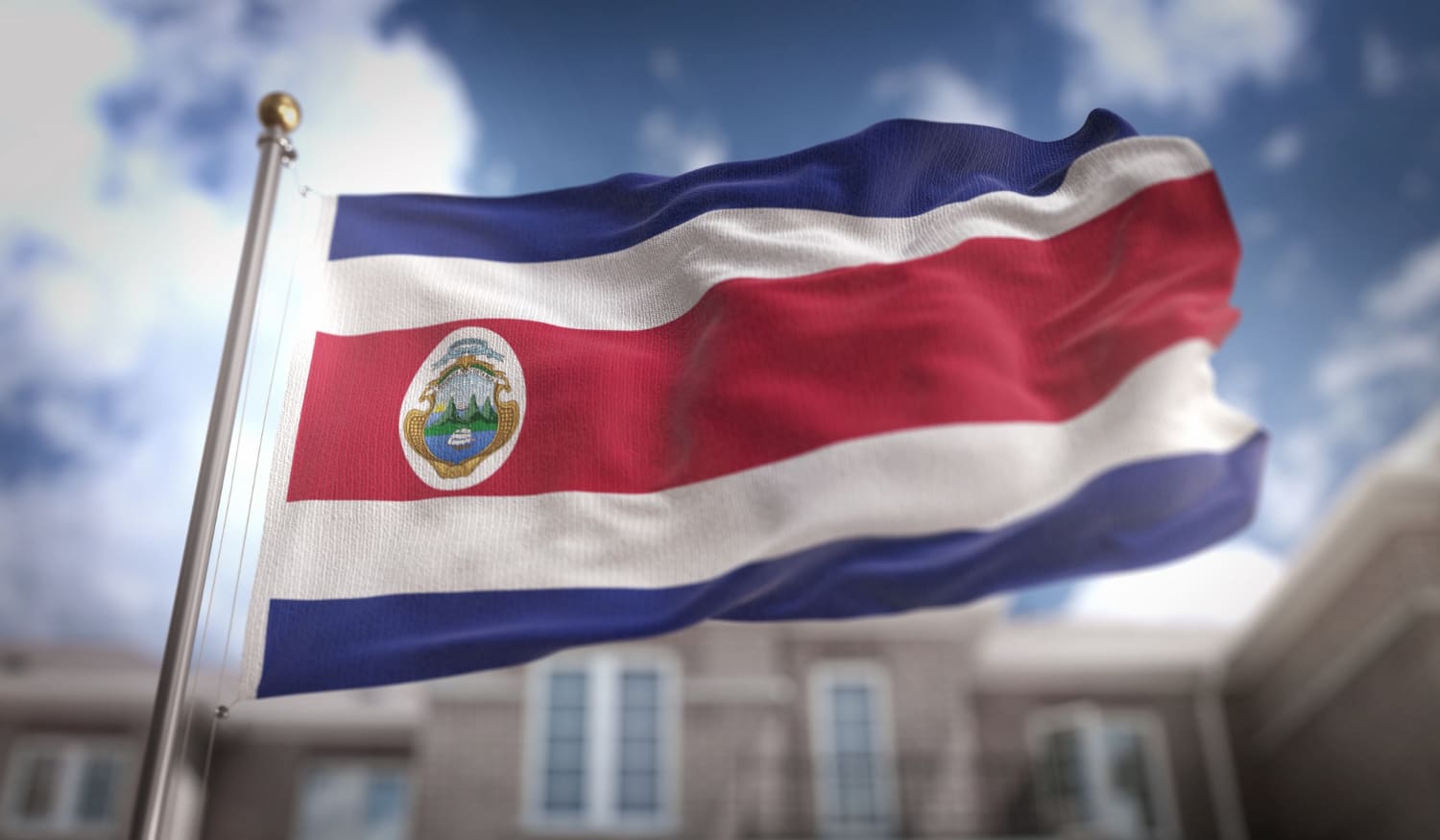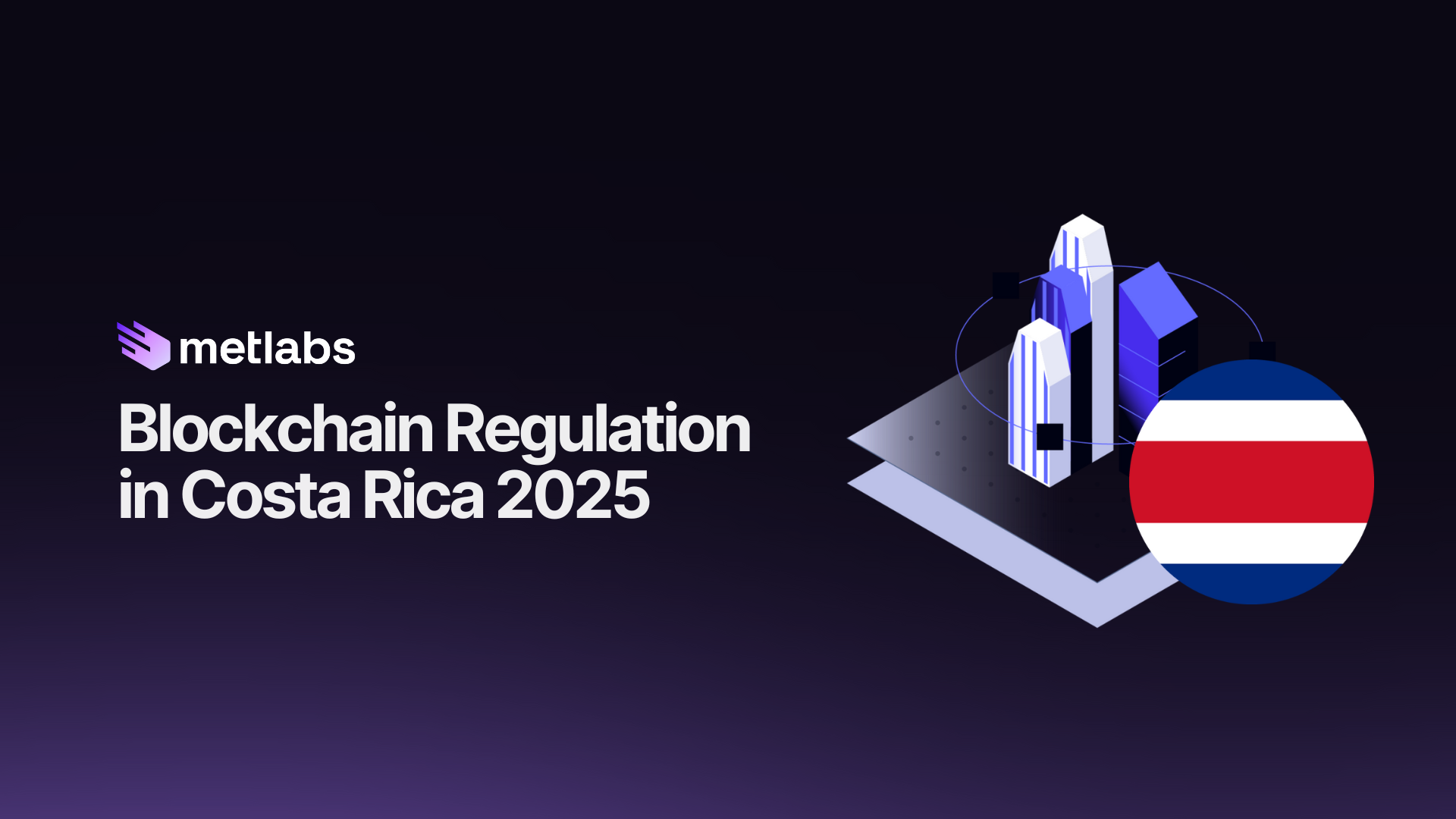The adoption of blockchain technology and asset tokenization is advancing at a rapid pace, but the real engine driving its global development is the existence of a clear, consistent and innovation-friendly legal framework.
Some countries have already established themselves as regulatory benchmarks, establishing specific rules for cryptoassets, DLT infrastructures and token issuance with legal backing. In this article we show you relevant information about blockchain regulation in Costa Rica, which you can use as a guide if you are looking to operate internationally or evaluate different strategic locations.

Current legislation on blockchain and virtual assets in Costa Rica
Bill for the regulation of cryptocurrency exchanges
In July 2025, the Legislative Assembly approved the debate of a bill aimed at regulating cryptocurrency exchanges and other virtual asset service providers. The text establishes the obligation to register with SUGEF, the implementation of KYC procedures, transaction monitoring and the reporting of suspicious transactions.
Bill No. 24,811 on reporting of cryptoasset service providers.
This bill introduces the obligation for VASPs to report information to the Tax Administration, in line with the OECD’s CARF. The law seeks to improve tax transparency and combat tax evasion, money laundering and illicit financing, establishing a sanctioning regime and allowing the international exchange of information.
General legislation for the prevention of money laundering and terrorist financing.
In the absence of a specific law on blockchain or cryptoassets, related activities are subject to general AML/CFT legislation. Companies offering storage, exchange or custody services must implement AML/CFT policies and procedures, comply with KYC requirements and report suspicious activities to the authorities.
Tokenization makes it possible to digitally represent real-world assets through blockchain, but for it to have legal value, it is essential that there is a regulatory framework that recognizes this operation. Costa Rica adopts its own approach, establishing specific rules for the issuance, custody or trading of tokens. In this block we explain how asset tokenization is regulated from a legal point of view, taking as an example an advanced jurisdiction such as Costa Rica.
Asset tokenization regulation in Costa Rica
Costa Rica does not have a specific legal framework for the tokenization of financial or non-financial assets, although there are bills pending that partially address the matter in the context of cryptoassets and virtual asset services.
Tokenization of real-world assets is currently conducted under the general private law regime and existing civil and tax regulations, without express recognition or detailed regulatory guidelines. Financial authorities and SUGEF apply general anti-money laundering and terrorist financing prevention regulations to tokenization service providers, requiring customer identification and transaction monitoring procedures.
The bills under discussion contemplate the obligation of registration and reporting for service providers, as well as the possibility for the Tax Administration to define the procedures for the audit of tokenized transactions. There are no regulatory sandboxes or official DLT pilot regimes, and tokenization activity depends on the interpretation of the legal nature of each token. Given this scenario, tokenization projects must analyze on a case-by-case basis the applicability of civil, tax and crime prevention rules, while awaiting the approval of specific legislation.
Regulatory agencies and authorities for digital assets in Costa Rica
General Superintendency of Financial Entities (SUGEF)
It is the main authority in charge of the supervision of VASPs in Costa Rica. As of the new legislation in process, SUGEF will have the power to register, supervise and sanction exchanges and other digital asset platforms, especially in AML, terrorist financing and compliance with international due diligence standards.
Central Bank of Costa Rica (BCCR)
BCCR is the authority responsible for monetary policy and the country’s payment system. It has stated in official communiqués that cryptoassets are not recognized as legal tender and have no state backing. It does not prohibit their use, but establishes that any operation with these assets is carried out under the principle of autonomy of will and without legal coverage.
General Superintendency of Securities (SUGEVAL)
Regulates the Costa Rican securities market. If a digital token has characteristics of a negotiable security, its issuance and commercialization must have prior authorization. In these cases, SUGEVAL requires compliance with public offering requirements, presentation of prospectus, transparency in disclosure and investor protection mechanisms.
Launching a business based on digital assets requires more than just technology: it is also necessary to comply with legal requirements such as licensing, registration and regulatory obligations. These conditions ensure that the business model is viable and sustainable over time, and that it meets transparency and fraud prevention standards. In this section we explore what licenses are usually required and what compliance criteria blockchain companies operating in Costa Rica must follow.

What licenses and requirements are needed to operate with cryptoassets in Costa Rica?
Mandatory registration with SUGEF for VASP
The pending bill establishes that exchanges and VASPs must register with SUGEF before starting operations in Costa Rica. Registration implies submitting detailed information on the corporate structure, internal compliance policies and customer identification mechanisms. Only registered entities will be able to operate legally and will be subject to permanent supervision and sanctions in case of non-compliance.
SUGEVAL authorization for tokens with nature of value
If a digital asset meets the legal conditions of a negotiable security, its issuer must request authorization from SUGEVAL. This requirement applies to public offerings of tokens with promises of profitability. The process requires an approved prospectus, issuer registration, governance rules and adequate information disclosure systems.
AML/KYC Compliance
Virtual asset service providers are required to implement money laundering and terrorist financing prevention policies and procedures, including client identification and verification, transaction monitoring and immediate reporting of suspicious transactions to the FIU. Enhanced due diligence is required for high-risk customers and special controls on international transfers, in line with FATF standards.
Operational limitations for entities supervised by BCCR
Financial entities supervised by BCCR, including banks, cooperatives and savings and loan companies, are not authorized to offer services related to cryptoassets, such as custody, conversion, commercialization, or direct or indirect intermediation. BCCR has reiterated that cryptocurrencies are not legal tender and has maintained a restrictive position regarding their integration into the regulated financial system.
Are you exploring developing your blockchain project in Costa Rica?
At Metlabs we help companies like yours and offer comprehensive support in the development of blockchain projects and tokenization of assets such as real estate, carbon credits, commodities, intellectual property, financial instruments, franchises and more, fully aligned with blockchain regulation in Costa Rica and international regulatory standards.
Contact us and find out how we can help you meeting all your business model needs, from technical validation and structuring to design, development and implementation of custom blockchain solutions, ready to scale from day one.



